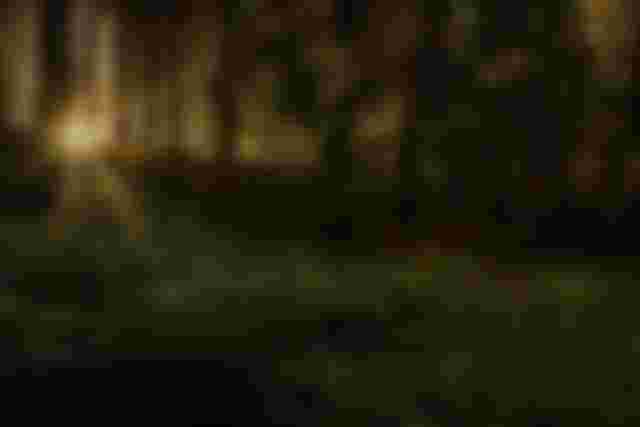Celtic London

Forest Primaeval
In trying to picture Celtic London before the Roman invasion, we, like children listening to a fairy tale, or reading the adventures of Alice in Wonderland, must imagine a great deal. Of one thing, however, we are tolerably certain; ie that the rude camp - it was hardly a town - stood in the "forest primaeval."
Dense thickets of oak, beech, and fir, covered Middlesex, Surrey, and all south-eastern Britain, harbouring wild cattle, reindeer and stags, bears, wolves, and foxes; while in the clefts of distant hills were great cave-bears, shaggy relics of a pre-historic period, when mammoths and other monsters roamed about the Thames valley, and wallowed unmolested on the muddy fore-shores of its broad estuary.
Trinovant
Shallow, but far-spreading, was the famous river.
All the low-lying portions of its basin were covered twice a day by waters that on retiring left vast swamps and dangerous morasses which served the settlers in Trinovant - the world's future metropolis - as a natural defence against every enemy.
Corn was grown in the cleared patches, and the pasturage was good.
Of flocks and herds the Celts had an abundance.
Game, feathered and furred - bustard, grouse, partridge, snipe, woodcock and plover, hares and rabbits - was to be had for the snaring; and from the sea-ward creeks, great skeins of wildfowl, swans, geese, widgeon, and teal, settled down in hard weather within an arrow's flight of the village.
Salmon and trout swarmed in the Thames; and fishermen in their rude coracles brought up from the river's mouth lordly turbot and dainty mullet fit for an emperor's table, while the fame of the British oyster had reached the ears of gourmands in Rome itself.
Iron, tin, copper, and lead, to say nothing of the precious metals, abounded, and pearls of rare size and quality were supposed to be plentiful.
The young men were athletic, and agile as roes, fit recruits for the Roman legions; the young maidens straight as arrows, and surpassingly fair to look upon.
Julius Caesar
Altogether, it was a goodly land, one to be coveted even by the World's Mistress, satiated with conquest; and the year 55 b.c. brought both the hour and the man - Julius Caesar landed in Britain, and Celtic dominion disappeared.
Earthworks, barrows, and tumuli on many a wind-swept hill, remind us of these gallant Celts vainly fighting against the disciplined forces of Caesar and his successors.
But of the habitations of those who defended Trinovant, the stronghold, no trace remains.
Indeed there is no material evidence that Celtic London ever existed.
Arthur Henry Beavan, 1901
